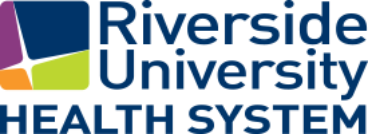PGY 3 Gastroenterology
Goals
Riverside County Regional Medical Center, Division of Gastroenterology, will provide a learning environment for the care, treatment and follow up of gastroenterology patients. Basic science, including motility, secretion, absorption and nutrition will be emphasized. Clinically, residents will assess GI pathology pre-operatively, develop clinical judgment on managing these issues, and learn procedural skills to address the problem. Careful post-procedural care and follow up will be emphasized.
Objectives
- Medical Knowledge
- Describe the progression from polyps to adenocarcinoma
- Describe the pathophysiology of GERD and outline the different medical and procedural (surgical and endoscopic treatments).
- Outline the indications for operative treatment of GERD.
- Compare and contrast Crohn’s disease and Ulcerative Colitis.
- Outline the different medical regimens for inflammatory bowel disease.
- Describe the pathophysiology of achalasia.
- Describe the diagnostic workup and radiographic as well as manomerie findings of achalasia.
- Outline the medical, procedural, and surgical therapies for achalasia.
- Outline the diagnostic workup for GERD and be able to interpret pH probe and manometry results.
- Be able to write TPN orders as well as enteral feeding orders.
- Be familiar with the different enteral feeding formulas.
Patient Care
- Establish basic proficiency in providing pre-procedural and post-procedural care (writes appropriate pre and post procedure orders for ward patients, handles nursing calls appropriately, and manages most routine post procedure care with minimal intervention by supervisor).
- Take an appropriate history to evaluate patients with gastrointestinal issues to include:
- A complete history of present illness
- Presence of any co-morbidities
- A review of social and family history impacting the present problem
- A complete review of systems
- Develop a proficiency in evaluation and interpretation of the different diagnostic modalities including: X-rays, ultrasounds, CT scans, Contrast studies and MRIs.
- Discuss treatment options, risks and potential complications of patients with G.I issues.
- Assist in the performance of GI procedures and tests.
- Recognize and manage post procedure GI complications.
- Demonstrate skill in basic techniques, including:
- EGD
- Flexible Sigmoidoscopy
- Colonoscopy
- Interventional EGD
- Interventional Colonoscopy
- Coordinate pre and post procedure care for patients on the GI service.
Professionalism
- The resident should be receptive to feedback on performance and attentive to ethical issues
- Understand the importance of honesty in the doctor-patient relationship and other medical interactions.
- Treat each patient, regardless of social or other circumstances, with the same degree of respect you would afford to your own family members.
- Learn how to participate in discussions and become an effective part of rounds, attending staff conference, etc.
- Complete all assigned patient care tasks for which you are responsible. Maintain a presentable appearance that sets the standard for the hospital that includes but is not limited to adequate hygiene and appropriate dress. Scrubs should be worn only when operating or while on call.
- Assist with families of ill patients and guidance of families towards or through difficult decisions.
- Demonstrate mentoring and positive role-modeling skills.
- Provide an appropriate orientation and guide all medical students as to their roles and responsibilities during the rotation.
- Provide an appropriate orientation to other junior residents that are about to rotate through the GI service.
- Complete the Professionalism in Surgery curriculum for the current month
Systems-Based Practice
- Understand, review, and contribute to the refinement of clinical pathways
- Understand the cost implications of medical decision-making
- Partner with health care management to facilitate resource efficient utilization of the
- hospital’s resources.
- Describe in general terms the benefits of clinical pathway implementation
- Develop a cost-effective attitude toward patient management.
- Develop an appreciation for the benefits of a multi-disciplinary approach to management of critically ill patients.
- Comply with the Health Insurance Portability and Accountability Act of 1996 (HIPAA) regulations regarding patient privacy and confidentiality.
- Demonstrate knowledge in steps and conduct during GI procedures.
- Have clear indications and know when it is appropriate to perform a GI procedure.
- Have an understanding of when it is not appropriate to perform a procedure.
- Demonstrate knowledge of steps to be taken to have a patient ready for a GI procedure including pre workup and medical clearance.
- Complete the SBP curriculum for the current month
Practice Based Learning & Improvement
- Demonstrate the ability to:
- Evaluate published literature in critically acclaimed journals and texts
- Apply clinical trials data to patient management
- Participate in academic and clinical discussions
- Apply knowledge of scientific data and best practices to the care of the GI patient
- Facilitate learning of medical students and physician assistant students on the team.
- Use the RCRMC library and databases on on-line resources to obtain up to date information and review recent advances in the care of the GI patient.
- Demonstrate a consistent pattern of responsible patient care and application of new knowledge to patient management.
- Demonstrate a command and facility with on line educational tools.
- Complete the Personal Learning Project as outlined in the Practice Based Learning and Improvement curriculum
Interpersonal & Communication Skills
- Work as effective team members
- Cultivate a culture of mutual respect with members of nursing and support staff
- Develop patterns of frequent and accurate communication with team members and attending staff
- Gain an appreciation for both verbal and non verbal communication from patients and staff
- Demonstrate consistent respectful interactions with members of nursing and support staff
- Demonstrate consistent, accurate and timely communication with members of the GI team
- Demonstrate sensitivity and thoughtfulness to patients concerns, and anxieties.
- The resident will demonstrate the ability to provide and request appropriate consultation from other medical specialists.
- Complete the ICS curriculum for the current quarter
